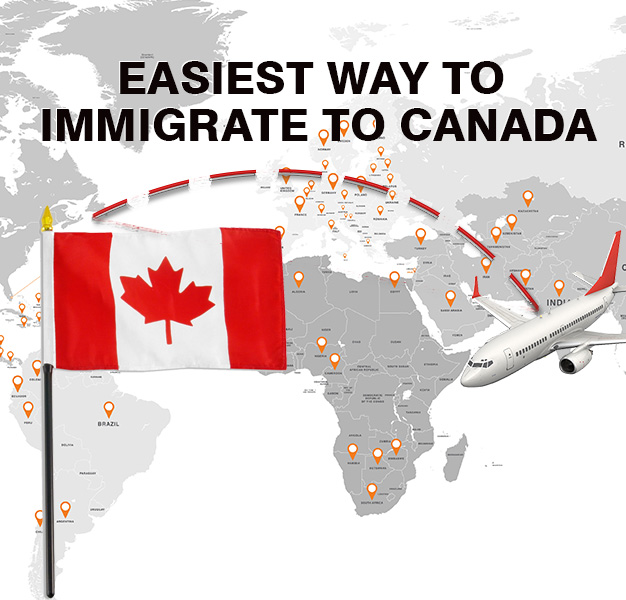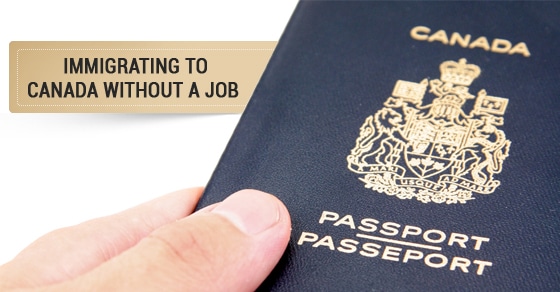Canada is a sought-after destination for individuals looking to make a new home, driven by its robust economy, exceptional quality of life, and welcoming society. However, navigating the immigration process in Canada can be intricate and time-intensive.
The swiftest pathway to relocate to Canada is via the Express Entry program. Express Entry functions as a merit-based system that assesses your eligibility for permanent residence grounded on your skill set, professional experience, educational background, and language proficiency. If you meet the specified prerequisites, you can construct an Express Entry profile and become part of the candidate pool. Subsequently, the Canadian government periodically conducts draws from this pool, inviting the candidates with the highest scores to apply for permanent residence.
Most Express Entry applications are processed in six months or less. It is worth noting that the point-based system is competitive, and the minimum cutoff score for Express Entry can fluctuate.
To qualify for Express Entry, you must:
1. Satisfy the minimum language proficiency requirements in English or French.
2. Possess at least one year of continuous full-time work experience in a skilled occupation within the past three years.
3. Hold a valid educational qualification equivalent to a Canadian high school diploma or higher.
Furthermore, you have the opportunity to accumulate points for factors such as:
– Age
– Professional experience in Canada
– Education in Canada
– Provincial nomination
– A job offer from a Canadian employer
To heighten your prospects of success in Express Entry, it is pivotal to maximize your points score. This can be achieved by enhancing your language proficiency, accumulating Canadian work experience, and securing a provincial nomination or job offer.
Below is a step-by-step guide for immigration to Canada through Express Entry:
1. Craft an Express Entry profile. This can be done through the Immigration, Refugees and Citizenship Canada (IRCC) website.
2. Undergo a language assessment. You must provide evidence of your proficiency in English or French to qualify for Express Entry.
3. Have your educational qualifications evaluated. If your educational credentials are from somewhere other than Canada, they must be assessed by a designated organization to determine their equivalence to a Canadian high school diploma or higher.
4. Assemble the necessary supporting documents, such as your passport, work experience records, and educational transcripts.
5. Submit your Express Entry profile once all the previous steps are completed.
6. Await an invitation to apply (ITA). The IRCC conducts regular draws from the Express Entry pool, inviting candidates with the highest scores to apply for permanent residence.
7. Submit your permanent residence application within 60 days of receiving an ITA.
8. Await a decision on your application. The IRCC will process your application and determine your eligibility for permanent residence.
Successful applicants in the Express Entry system will obtain permanent resident status in Canada, granting them the ability to reside and work permanently.
Aside from Express Entry, other avenues exist to immigrate to Canada, albeit typically involving more complexity and a lengthier process. These alternatives include:
Provincial Nominee Programs (PNPs): These programs empower provinces and territories to nominate skilled workers and other individuals for Canadian immigration. Each region has its PNP with varying prerequisites.
Business Immigration Programs: Entrepreneurs and investors can immigrate to Canada through diverse business immigration programs, each carrying specific criteria.
Family Sponsorship: If you have a close family member who is a Canadian citizen or permanent resident, they may be eligible to sponsor your immigration to Canada.
Refugee and Humanitarian Programs: Canada provides refugee and humanitarian programs for individuals fleeing persecution or violence, offering them the opportunity to immigrate to the country.
If you aspire to immigrate to Canada, it is advisable to explore the IRCC website for comprehensive information. Additionally, consulting with a licensed immigration consultant can provide personalized guidance.
Here are some additional suggestions for those considering immigration to Canada:
Commence planning early as the immigration process can extend for several months or even years.
Maintain organization by collecting all necessary documents as early as possible.
Ensure honesty and accuracy in your application, as any misinformation can result in your application being declined.






